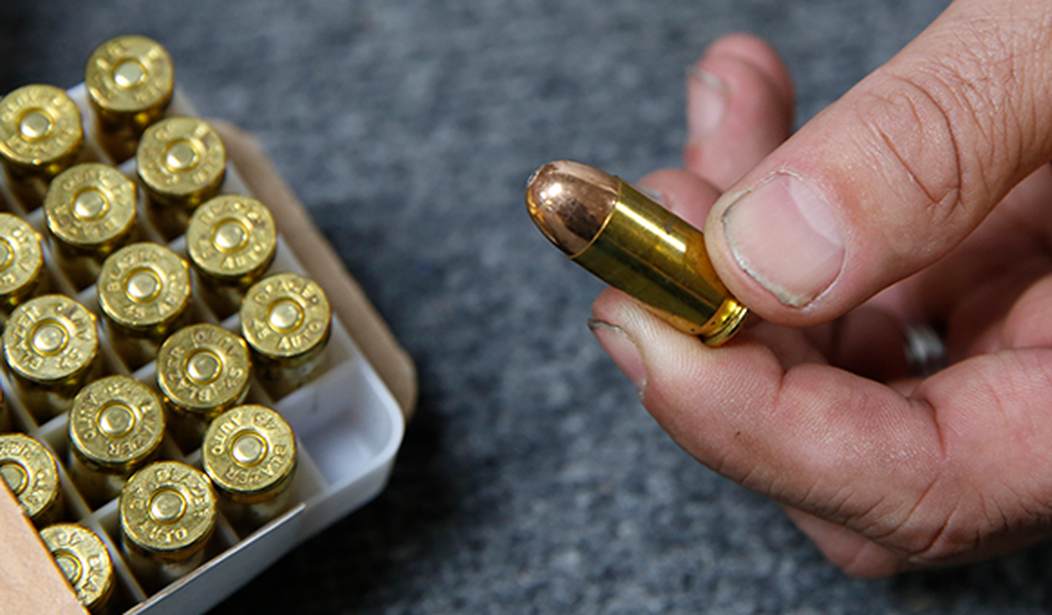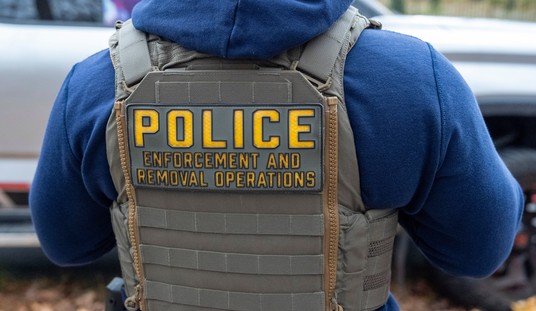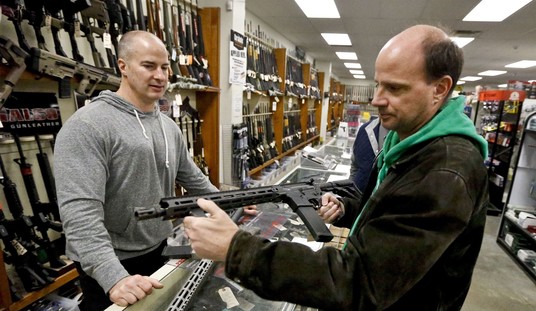I'd love to know how much earned media American Rounds' ammunition vending machines have received from gun control fans, because I'm convinced it dwarfs the amount of money the company has spent on its official marketing efforts.
The machines, which are in operation only in a handful of stores in Alabama, Texas, Oklahoma, and Colorado (though the company says it's bringing about 200 more online in the coming months), have become one of the favorite subjects of gun control activists since news of their existence first broke a little more than a month ago.
Oddly, some gun control advocates have praised the technology behind the machines, even as they've bemoaned their very existence. Writing at Slate, 22-year-old Oklahoman Maddy Keyes even admitted that the ID requirement and facial recognition technology that the machines use to determine whether someone is old enough to purchase ammo "likely won’t lead to more violence". But Keyes also articulated the real reason why so many gun control fans are seething over the machines.
Keyes paid a visit to the Super-C Mart in Noble, Oklahoma to try out one of the machines first-hand. After scanning her ID and smiling for the facial-recognition camera, Keyes was quickly able to purchase a box of 12-gauge shotgun shells; more as a souvenir than anything else, given that she doesn't currently own a shotgun or any other firearm.
In her report, Keyes says she "grabbed the box as quickly as I could and got the hell out of there" because she was afraid of "how I may be perceived for buying them"; an odd fear, given that she noted earlier in her story that Oklahoma is "a deep-red state full of Second Amendment supporters." Then again, Keyes also admitted to being afraid of firearms because of media reports on "mass shootings". She's not afraid to get behind the wheel of her car and drive to a grocery store, even though far more Americans die in traffic accidents than incidents of mass violence, but guns are different somehow. And the ammunition vending machines are a another cause for her concern; not necessarily for what they sell, but for what they represent.
To me, these machines are yet another reminder of how normalized guns are in America. I’m not against the Second Amendment. I understand there is a time and place where guns are necessary. But I’m also part of the generation asking desperately for stricter regulations so maybe, just maybe, we won’t have to run, hide, fight anymore.
I’m 22 years old. I’ve never had gun training. But on that Sunday morning, I held bullets in my hand. Bullets I bought from a grocery-store vending machine. Later, I left the store with a box of bullets and a bag of egg noodles (might as well cross that off my list while I was there, right?). As I walked through the parking lot to my car, I couldn’t suppress the feeling that I had just evaded some incredibly faulty security measures, because surely it can’t be that easy to buy bullets?
But it was. So very easy.
The box now sits on a shelf at the back of my bedroom closet. I’ll probably never touch it again, but I’ll remember it’s there—a reminder of the inseparable nature of the land of the free and a gun.
Keyes is well aware that it's actually even easier to purchase ammunition in most states, where you can simply go online and have ammo delivered to your home. It's not the convenience or even the absence of a background check that's most upsetting to her. It's the fact that gun ownership itself is normal here in the United States (and certainly in states like Oklahoma).
Logistical concerns regarding the machines aside, the concept itself is inherently divisive—for obvious reasons. Gun advocates have long argued that ammunition should be more easily purchased and accessible, while gun safety advocates push for the exact opposite.
“It’s either, ‘That’s pointless, why are we doing this?’ or ‘That’s cool.’ There’s really nothing in between,” Joshua Harris-Till, the communications lead for the Oklahoma chapter of the gun regulation advocacy group Moms Demand Action, told me about the machines. When American Rounds first made headlines, I’d say I fell into the former category.
David Yamane, a professor of sociology at Wake Forest University and an expert on guns in America, told me that any time something regarding guns moves into the fore—like, say, an A.I.-powered bullet vending machine—it just adds fuel to the fire.
The vending machines “are like this Rorschach test,” Yamane said. “You put that in front of people and [their] responses tell you everything about how they view guns generally.”
Yamane's book "Gun Curious" is all about the fact that guns are normal and normal people own guns, which may be completely obvious to most of us. But for folks like Keyes and her "I'm not against the Second Amendment, but..." philosophy, gun ownership is something that should be abnormal... and perhaps even utterly taboo. I get the sense that, at the very least, she'd like all of us to act as furtively as she did when purchasing a box of shotgun shells, scurrying quickly back to our car as soon as possible (at least as soon as we've finished our grocery shopping) in the hopes of avoiding any scrutiny from the general public.
Of course, her desire for "stricter regulations" might very well encompass California-style background checks for ammunition or even a ban on common calibers. Since she never really explored what additional gun controls would alleviate her fear, we're left to guess what anti-gun laws would ease her troubled mind. But if her fundamental problem with the vending machines is that they're evidence that gun ownership is just a normal experience for tens of millions of her fellow Americans, I'd say she's more opposed to the Second Amendment than she's willing to admit in print... and maybe to herself as well.









